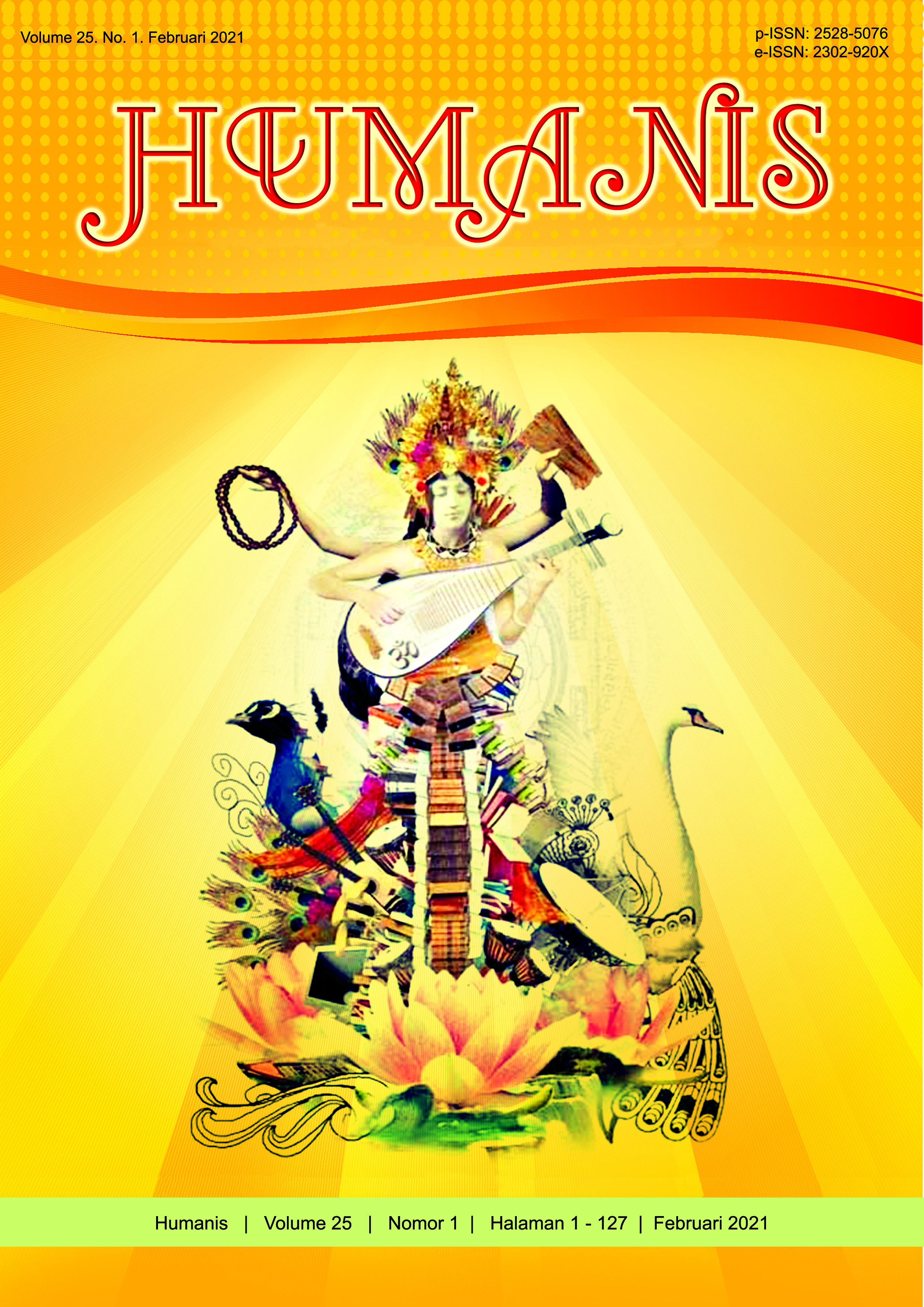Gerakan Sosial (Wuat Wa’i) pada Masyarakat Desa Gurung Liwut
Abstract
One of the traditions that is still preserved today in the village of Gurng Liwut is the wuat wa'i tradition. The procession of the Wuat Wa'i tradition emphasizes the participation of the local community. The preservation of the tradition of wuat wa'i is based on community behavior which upholds the value of solidarity and integrity towards an innovative society in advancing and prospering social life. The formulation of the problems in this study include (1). How is the function of wa'i in the community of Gurung Liwut Village, Borong District, East Manggarai Regency? (2). What is the existence of the Wuat Wa'i tradition in the people of Gurung Liwut Village? This study aims to determine the function of the Wuat Wa'i tradition and explain the meaning of the Wuat Wa'i tradition for the people of Gurung Liwut Village. This research uses functional theory from Bronislaw Malinowski and Giving from Marcel Mauss. The method used is a qualitative research method. Data collection techniques include observation, interviews, and literature study. The analysis used is descriptive qualitative. The results of this study reveal that in the tradition of wuat wa'i there is a relationship between moral values, economic improvement, and improvement in formal education. The implementation of the Wuat Wa'i tradition is a social movement that raises funds to finance formal education and increase capital for someone who goes abroad, both at home and abroad. There are various processes in carrying out the tradition of wuat wa'i, namely the deliberation of the event organizers, determining the good day, the completeness of the event material. The conclusion of this research is that the tradition of wuat wa'i is a clear proof of the motivation of the local community for the importance of learning through formal education and desires to improve the community's economy through experience gained in the land of thechain.
Downloads
References
Deki, Kanisus teobaldus, 2011.Tradisi Lisan Orang Manggarai.Jakarta: Parrhesia Institude Jakarta.
Dagur, Anthony Bagul.1997. Kebudayaan Manggarai Sebagai Salah Satu Khasanah Kebudayaan Nasional. Surabaya: Umbhara Press
Hadi, Aulia Edi Suharto, Ph.D. 2006. “Pekerjaan Sosial Dalam Pembangunan Kesejateraan Sosial”. PT. Reflika Aditama Bandung: Jurnal Masyarakat Dan Budaya Volume 10 No. 1:183
Hidayati, Okta Nurul, IAIN Surakarta 2017. “Filantropi Dakwah Dan Kaum Minoritas Di Indonesia”. Surabaya: Journal of Multidisciplinary Studies Vol. 1 No.2:230
Hotman M. Siahan. 1995 Makro Sosiologi. Jakarta: PT.Raja Grafindo Persada
Hakim, Abdul. 2014. “Kearifan Lokal Dalam Ekonomi Islam”. Fakultas Syari’ah Dan Ekonomi Islam UIN Sunan Ampel Surabaya: Jurnal Akademika Vol. 8 No. 1: 81
Ina Helena, Agustina. 2005. “Studi Kemampuan Masyarakat Dalam Pengembangan Ekonomi Lokal Sebagai Upaya Pengetasan Kemiskinan Desa Tega Lurung, Kecamaatan Legonkulon, Kabupaten Subang”. Fakultas Teknik Universitas Bandung: Jurnal Penelitian Volume 21 No. 03: 429.
Muniah. 2016. “Strategi Pengembangan Ekowisata Berbasis Ekonomi Lokal Dalam Rangka Program Pengetasan Kemiskinan Di Wilayah Karimunjawa”. Program pascasarjana Interdisipliner Univ. Brawijaya Malang: Jurnal Ilmu-ilmu Pertanian “Agrarika” Vol. 10 No. 1:83
Marzuki, Ahmad. 2002 “Strategi Adaptasi Minoritas Muslim Dengan Budaya Lokal Desa Suku Tengger, Kabupaten Pasuruan”. Jurnal Penelitian Volume 1: No. 3: 270.
Namping, Hamka. 2013. “Modal Sosial Sebagai Strategi Pengetasan Kemiskinan Secara Mandiri Pada Nelayan. Sulawesi Selatan Dan Sulawesi Barat: Jurnal Pengabdian Kepada Masyarakat vol. 12 No. 1:13
Pramudyasmono, Hajar G. 2012 “Perilaku Masyarakat Miskin Di Kota Bengkulu Dan Model Pengentasan Kemiskinan Berbasis Nilai Sosial-Budaya Lokal”. Jurusan Sosiologi Fisip UNIB: Jurnal Sosiologi Andalas vol.12 No. 1: 18
Palikhah, Nur. ”Konsep Kemiskinan Kultural”. Fakultas Dakwah Dan Komunikasi IAIN Antasari: Jurnal Ilmu Dakwah Vol. 15 No. 30
Susantyo, Bandrum. Telaahan atas tulisan David C. Korten 2007. “Partisipasi Masyarakat Dalam Pembangunan Di Pedesaan”. Jurnal Forum Penelitian Volume 12 No. 03: 21.
Safri Miradj, Sumarno. 2014. “Pemberdayaan Masyarakat Miskin, Melalui Proses Pendidikan Nonformal, Upaya Meningkatkan Kesejahteraan Sosial Di Kabupaten Halmahera Barat”. Universitas Negeri Yogyakarta: Jurnal Pendidikan dan Pemberdayaan Masyarakat Vol. 1 No. 1: 12
Trisnawati, Ni Made. 2016. “Partisipasi Kelas Menengah Dalam Pengetasaan Kemiskinan Perdesaan Di Kabupaten Gianyar”. Jurusan Ekonomi Pembangunan Fakultas Ekonomi Dan Bisnis Universitas Udayana Bali: Jurnal Penelitian Vol. 12 No. 2:79
Sururi, Ahmad. 2017. “Representasi Komunikasi Budaya “Ngarak Pengantin Buaya Putih” Dalam Perubahan Sosial Masyarakat Padarincang”. Banten: Jurnal penelitian profektif Komunikasi vol. 10 No. 02:33
Tamin, Imron Hadi. 2011. “Peran Filantropi Dalam Pengetasan Kemiskinan Dalam Komunitas Lokal”. Prodi Sosiologi Fakultas Ilmu Sosial Dan Ilmu Politik (FISIP) Unud: Jurnal Sosiologi IslamVol. 1 No. 1:58
Usman, Jaelan. 2011. “Implementasi Kebijakan Tata Kelola Pemerintah Daerah Dengan Semangat Efouria Demokrasi Lokal”. Fakultas Ilmu Sosial Dan Ilmu Politik Univ. Muhammadiyah Makassar Vol.1 No. 1:50
Parihala, Yohanes, dan Rolland A. Samson. 2019. “Pendidikan yang Membebaskan Masyarakat Vaimite dari Kemiskinan”. Universitas Kristen Indonesia Maluku: Jurnal Ilmiah Teologi dan Studi Agama Volume 1 No.1:59


















